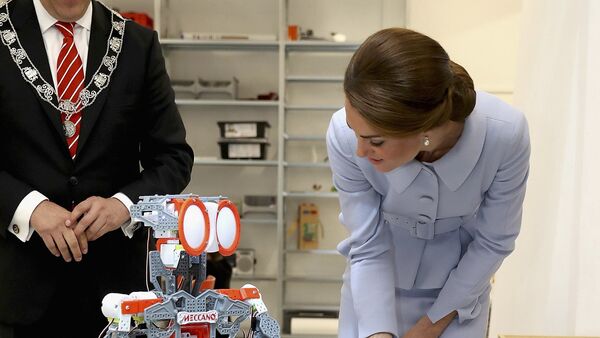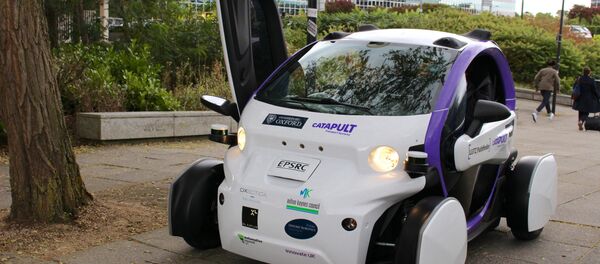The report by Oxford University and Deloitte titled, The State of the State, highlights the industries most impacted by the world of automation. The research shows that over one million Brits could be out of work by 2030, with the strong possibility of being replaced by robots.
Leaving the EU is an era-defining task for the UK government. What will it mean for devolved governments? Read more: https://t.co/m7h8ehQpud
— Deloitte in Scotland (@DeloitteScot) October 26, 2016
It will all from part of the Fourth Industrial Revolution powered by artificial intelligence.
There is a 77 percent probability of around 1.3 million "repetitive and predictable" administrative and operative roles being given to robots within the next 15 years.
The results show that the area most impacted by this will be public sector jobs, which includes teachers, social workers and even those within the police force.
Data brought together from Oxford academics Carl Frey and Michael Osborne, who worked in collaboration with Deloitte, has shown that the impact will be a gradual one, but it could see 861,000 public sector jobs lost by 2030, which in turn will deliver a saving of US$19 billion to the UK economy
Experts State Robots Will Take Over Additional 850,000 Jobs By 2030 https://t.co/1fw8yRmwRj #future
— #TechNews (@_new_Tech_news) 26 October 2016
"We are already seeing examples of technology playing a role in the public sector," said Mike Turley, Deloitte's global public sector leader in a recent statement.
The report also suggests that in some public sector roles, the use of robots may even complement the work of humans.
For example, some National Health Service (NHS) hospitals are using sensor technology, which monitors patients' vital signs, but also frees up the nurses time and allows them to interact with patients more meaningfully.
"Robotic processes are supporting local government in their data entry, driverless trains are becoming more widespread and sensor technology is being used in hospitals and care homes to monitor patients and give nurses and carers more time for quality patient interaction," said Mike Turley.
The robot revolution is coming and already we are seeing the impact of robots in our everyday lives, such as the introduction of driverless cars.
However, moving to a more automated world could be seen as a sign of drastic change, which could result in people facing unemployment. How the Government addresses this new technological era is important, if we are to ensure skill sets are not wasted and unemployment levels do not rise.



